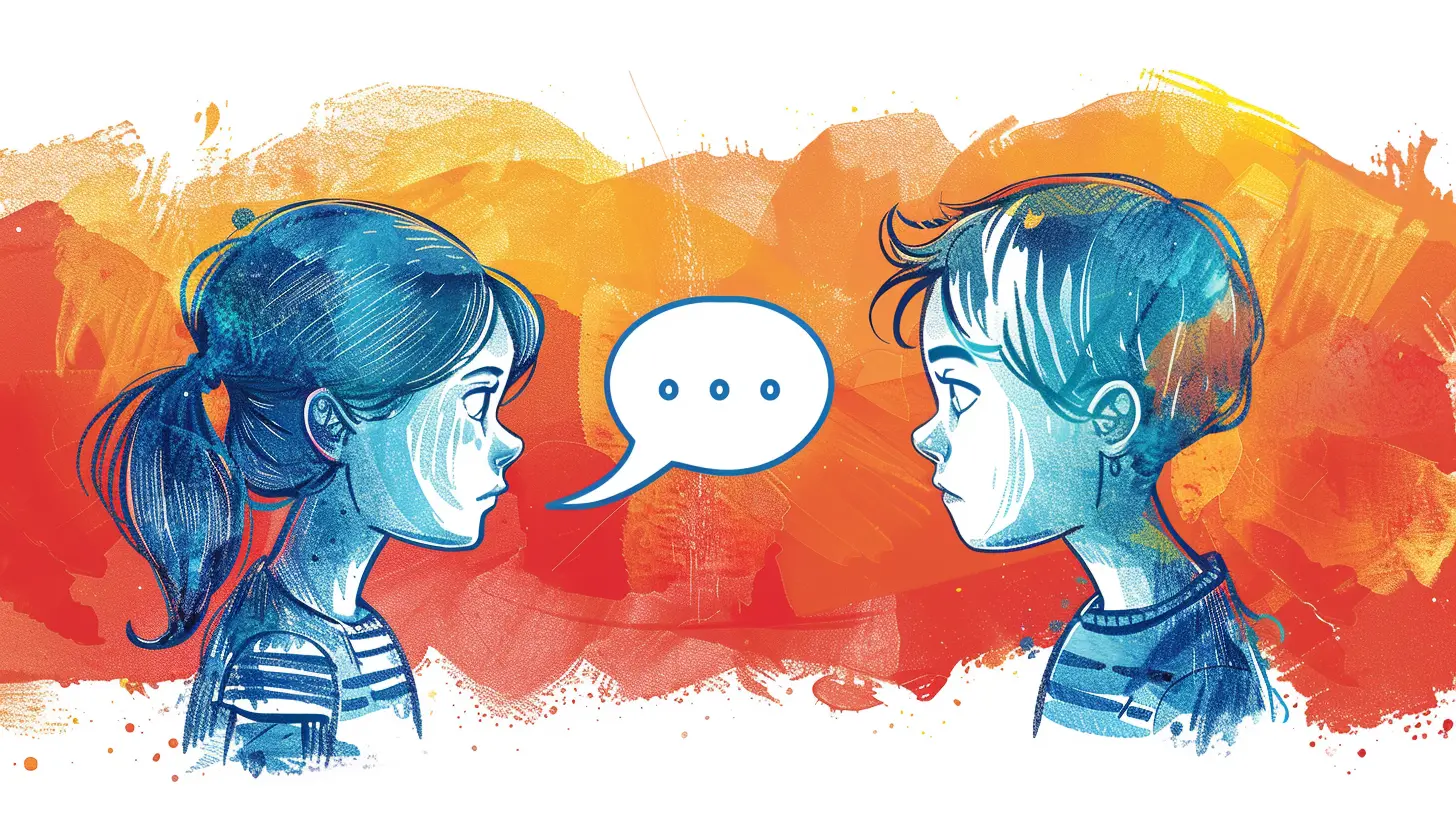How to Handle Difficult Conversations with Confidence
16 May 2025
Difficult conversations—nobody really enjoys them, yet we all have to face them at some point. Whether you're addressing a conflict with a colleague, bringing up concerns with a friend, or discussing a sensitive issue with a loved one, these conversations can feel like stepping into a minefield. But what if I told you that you could navigate them with confidence instead of dread?
In this guide, we'll dive into the art of handling difficult conversations with poise, clarity, and confidence. Ready? Let’s get started. 
Why Are Difficult Conversations So... Difficult?
Let’s be honest—why do we avoid tough conversations in the first place? Fear. Fear of confrontation, fear of saying the wrong thing, fear of hurting someone’s feelings, or even fear of damaging a relationship.Our brains are wired for survival, and uncomfortable discussions can feel like a threat. The moment tension rises, our fight-or-flight response kicks in. Either we get defensive (fight) or we avoid the conversation entirely (flight). Neither option is productive. So, how do we push through these reactions and tackle tough talks head-on? 
1. Shift Your Mindset
Before diving into the nitty-gritty of communication techniques, let’s start with mindset. Here’s a truth bomb: difficult conversations don’t have to be negative. In fact, they present an opportunity for growth, understanding, and deeper connections.Instead of viewing these talks as confrontations, reframe them as constructive discussions. Instead of thinking, "This is going to be a disaster," tell yourself, "This is a chance to clarify, resolve, and improve." This simple mental shift can reduce anxiety and help you approach the conversation with a calmer mindset. 
2. Prepare, But Don’t Script It
Preparation is key, but over-preparing can backfire. Have a rough idea of what you need to say, but don’t memorize a word-for-word script. Why? Because conversations are unpredictable. If you rely too much on a script, you’ll stumble the moment the discussion takes a different turn.Instead, focus on these key elements:
- Your main message – What’s the core point you want to communicate?
- Your goal – What outcome are you hoping for? Resolution? Mutual understanding? A compromise?
- Your tone – Stay calm, composed, and open.
A great way to prepare is to jot down bullet points rather than full sentences. This allows you to stay flexible while ensuring you cover important points. 
3. Choose the Right Time and Place
Timing matters. Imagine trying to have a serious discussion with someone when they’re stressed, distracted, or in a bad mood—not ideal, right? Pick a time when both of you can be fully present.Also, consider the environment. A private, quiet setting is usually best, especially for sensitive topics. Public places can make people feel exposed, and distractions can derail the conversation.
4. Start with Empathy
A tough conversation isn’t just about getting your point across—it’s also about hearing the other person. And that starts with empathy.Before diving in, consider the other person’s perspective. Ask yourself:
- How might they feel about this situation?
- What concerns or fears might they have?
- Is there something I might not be seeing?
Starting the conversation with a statement of empathy can set the right tone. For example:
"I know this might be a tough topic to talk about, but I value our relationship, and I want us to work through this together."
This immediately shows that you’re not there to attack but to understand and resolve.
5. Use "I" Statements Instead of "You" Statements
The way we frame our words can make or break a conversation. A common mistake? Using “you” statements that sound accusatory.Compare these two approaches:
🛑 "You never listen to me!" (Sounds blaming)
✅ "I feel unheard when I try to share my thoughts." (Expresses how you feel without blaming)
By using “I” statements, you shift the focus to your feelings rather than making the other person feel defensive.
6. Keep Your Emotions in Check
Emotions can escalate quickly, especially in heated conversations. While it’s okay to express how you feel, letting emotions take over can turn a productive discussion into a shouting match.If you feel yourself getting overwhelmed:
- Take a deep breath.
- Pause before responding.
- If necessary, suggest a short break to cool off.
It’s not about suppressing emotions—it’s about managing them so they don’t derail the conversation.
7. Listen More Than You Speak
Most people listen with the intent to reply, not with the intent to understand. Real listening means fully focusing on the other person without mentally preparing your response.Try these listening techniques:
- Stay present – Avoid interrupting or thinking about what you’ll say next.
- Use reflective listening – Repeat back what you hear to show understanding. ("So, if I understand correctly, you're feeling frustrated because…")
- Ask clarifying questions – "Can you tell me more about that?"
Listening not only helps you understand their perspective but also makes the other person feel heard and valued.
8. Seek a Win-Win Solution
The goal of a difficult conversation isn’t to “win” but to find a resolution that benefits both parties. Rather than approaching the dialogue as a battle, shift your mindset to collaboration.Ask questions like:
- "What can we do to move forward?"
- "How can we resolve this in a way that works for both of us?"
Compromise doesn’t mean giving up what you want—it means working together to find the best possible solution.
9. Know When to End the Conversation
Not every conversation will wrap up in a neat little bow. Sometimes, agreeing to revisit the topic later is the best course of action. If emotions are running high and no progress is being made, it’s okay to take a step back.A simple way to pause a conversation:
"I feel like we're both getting a little overwhelmed. How about we take some time to process things and talk again later?"
This approach prevents unnecessary conflict and allows both parties to reflect.
10. Practice, Practice, Practice
Like any skill, handling difficult conversations takes practice. The more you engage in them, the more confident you’ll become. Start with smaller, low-stakes conversations and build your way up.Next time you find yourself avoiding a tough talk, remind yourself: Growth happens outside of your comfort zone. Lean into the discomfort, and you’ll come out stronger on the other side.
Final Thoughts
Difficult conversations are just that—difficult. But they don’t have to be terrifying. With the right mindset, preparation, and approach, you can navigate them with confidence and grace.So, the next time you need to have a tough chat, remember: Stay calm, focus on understanding, and aim for resolution rather than confrontation. You’ve got this!
all images in this post were generated using AI tools
Category:
Communication SkillsAuthor:

Zoe McKay
Discussion
rate this article
3 comments
Orionis Burton
This article effectively outlines practical strategies for navigating tough discussions, emphasizing preparation, active listening, and emotional regulation to build confidence and rapport.
June 7, 2025 at 12:22 PM

Zoe McKay
Thank you for your feedback! I'm glad you found the strategies useful for navigating tough discussions.
Leo McNaughton
Navigating tough conversations can be challenging, but your insights provide valuable tools for building confidence and understanding. Remember, it’s okay to feel apprehensive; approaching these discussions with empathy and clarity can make all the difference. Thank you for sharing!
May 23, 2025 at 10:57 AM

Zoe McKay
Thank you for your thoughtful response! I'm glad you found the insights helpful. Empathy and clarity truly are key in tough conversations.
Trinity James
Navigating tough talks is like dancing with a cactus—spiky but surprisingly fulfilling! Embrace the prickles, sprinkle in a little humor, and remember: even the most cringeworthy chats can turn into unforgettable tales. After all, who needs a comfort zone when you can have a “conversation adventure”? 🌵✨
May 19, 2025 at 4:32 AM

Zoe McKay
Absolutely! Embracing the challenges of tough conversations can lead to growth and unforgettable experiences. Humor truly can be the best companion on these "conversation adventures." 🌟



